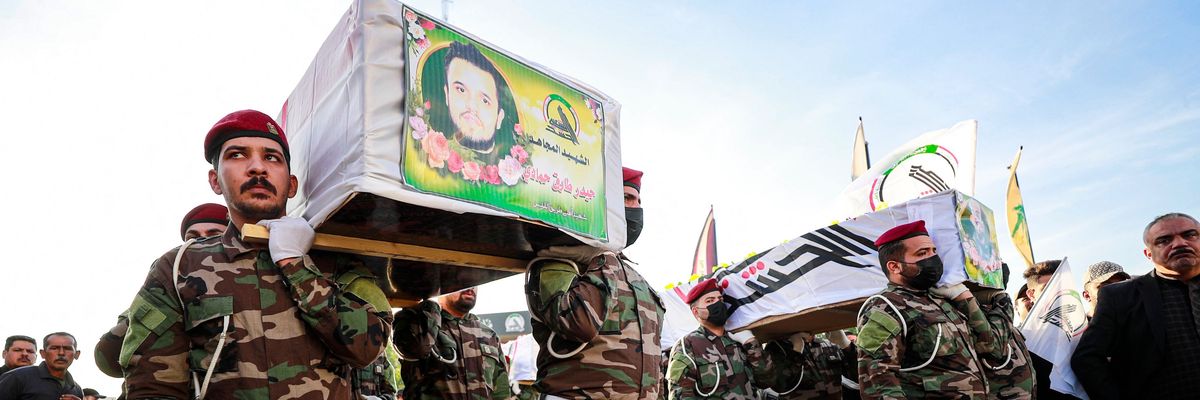The Iraqi government on Wednesday condemned deadly U.S. airstrikes south of Baghdad as "a clear violation of sovereignty" that risks escalating regional tensions amid Israel's assault on the Gaza Strip.
The Pentagon said the U.S. strikes targeted two facilities used by Kataib Hezbollah, an Iraqi militia group that the U.S. considers an Iranian proxy. The group, which the U.S. has accused of carrying out an attack on American forces at Iraq's al-Asad Airbase, said eight of its fighters were killed in the early Wednesday strikes and pledged to retaliate.
Bassem al-Awadi, a spokesperson for Iraq's government, said the U.S. launched the strikes without any coordination with Iraqi officials, a decision that he called "a dangerous escalation" and "an attempt to disrupt the stable internal security situation."
Al-Awadi also denounced "any armed action or activity outside the military institution is deemed condemnable and an unlawful endeavor that jeopardizes the national interest," an apparent reference to militia attacks on U.S. forces in Iraq.
The U.S. airstrikes came just over 24 hours after an American gunship launched an attack on what the Pentagon described as "an Iranian-backed militia vehicle and a number of Iranian-backed militia personnel" in Iraq, purportedly targeting militants who were involved in a ballistic missile strike on U.S. forces.
The missile attack "resulted in non-serious injuries to U.S. and coalition forces, as well as minor damage to infrastructure on the installation," the Pentagon said.
"One thing is clear: Only through a cease-fire can we prevent the conflict from spreading and leading to a devastating regional war that sucks the U.S. into it."
Attacks on the thousands of U.S. forces stationed in Iraq and Syria have intensified since Israel began its latest devastating bombing campaign in Gaza on October 7, when a Hamas-led attack on southern Israel killed around 1,200 people. Israel and Hamas have agreed to a four-day pause that's set to begin on Thursday.
In recent weeks, the U.S. has carried out three separate series of airstrikes in Syria, actions it has described as defensive responses to rocket and drone attacks that have injured dozens of American forces since last month. None of the U.S. strikes were approved by Congress.
The bombings have intensified fears of a full-scale regional conflict potentially involving the U.S., Israel, Iran, Syria, Lebanon's Hezbollah, and Hamas militants in Gaza. Iran's foreign minister recently warned that "expansion of the scope of the war has become inevitable" due to the severity of Israel's assault on the Gaza Strip.
Trita Parsi, executive vice president of the Quincy Institute for Responsible Statecraft, argued Tuesday that "one thing is clear: Only through a cease-fire can we prevent the conflict from spreading and leading to a devastating regional war that sucks the U.S. into it."




